Arsène Wenger: ‘I try to read everything that helps me understand human beings’
Arsène Wenger often imagines what he will say to God when he dies. In most of these exchanges, God asks Wenger to justify his time on Earth, how he gave meaning to his own life and to others. “I tried to win football matches!” Wenger will explain. God looks at him, sceptical: “That’s all?” Wenger goes on: winning matches is really hard to do. If you do your job well, you bring joy to millions, a collective euphoria and catharsis. And if you don’t… At this point Wenger snaps back to reality.
“Sometimes I feel I’m scared for having only done football in my life,” says Wenger, who is 70, on a video call from Zurich. “So, when I speak to God, it’s a bit pretentious. It’s just that if God exists and they have a test to see if you go to hell or to heaven, it might look ridiculous to only have dedicated your life to winning football games. And that’s why I came up with that idea. I feel sometimes it could feel meaningless that you dedicated your whole life to that.”
Wenger was born in 1949, grew up in a village in Alsace, eastern France, and had an early insight into human psychology watching the patrons of the bistro that his parents ran. “Alcohol, brawling, violence, everything that used to scare or disgust me as a child,” he recalls in My Life in Red and White, his new autobiography. He became a hard-grafting midfielder, eventually playing for Strasbourg in France’s top division, but he always thought deeply, even obsessively, about the game, and in his early 30s he moved organically into coaching, first at Cannes and Nancy then Monaco and in Japan at Nagoya Grampus Eight.
I don’t know why but football games are my life and I don’t think that’s ever going to change
In 1996, Wenger, tall, whip-thin, like a sixth-former in a suit, entered the British consciousness when he was announced by Arsenal as the fourth foreign manager in the history of top-division English football (the previous three had not fared well). He held the position for 22 years until 2018, during which time Arsenal won three Premier League titles and seven FA Cups. While his great rival at Manchester United, Alex Ferguson, motivated players with the famed “hairdryer treatment”, Wenger became known for “invisible” training: a holistic approach that went beyond fitness and ball skills and overhauled the lifestyle and nutrition of the squad. Players were given instruction on how to chew their food; the traditional half-time boost of a chocolate bar and fizzy drink was swapped for a sugar lump with caffeine drops on it.
Underpinning everything was Wenger’s profound, all-consuming desire to win – and win with style. In My Life in Red and White, he describes football and Arsenal as “a matter of life and death” – not once, but three times. Does he really mean that? “I would say football at a top-level experience is like that,” Wenger replies. “Because if it’s not a matter of life or death, it doesn’t mean enough to you and you don’t survive a long time in the job.”
Sometimes Wenger’s competitiveness spilled over, notably in his epic, bristling clashes with first Ferguson and then Chelsea’s José Mourinho. But anyone expecting mud-slinging from his autobiography has misread Wenger. There’s mention of Ferguson’s “crushing authority” on English football, but he nimbly sidesteps anything more damning; Mourinho isn’t mentioned once. “I didn’t want it to be a book of revenge or frustration or of injustice,” he says. “I didn’t want to show: ‘Well, he did that to me’ – all these things. But you know what happened in your life and you have to rise above that. I wanted it to be a positive experience of life. You cannot have the life I’ve had until now and be negative.”
More than that, Wenger wants to make clear that, when the dust settled, there was always respect. “Every manager goes through good and bad periods. They are human beings,” he says. “It’s difficult to measure the quality of our job. For example, last season, Liverpool won the championship and [Jürgen] Klopp got praised for that. And rightly so. But you must say the guy at Sheffield United [Chris Wilder, whose team finished ninth] has done a great job as well. Who has done a better job? You don’t know.”
Wenger has not returned to the sidelines since leaving Arsenal, but as of November he has brought characteristic rigour to his role as Fifa’s head of Global Football Development. He separated from his wife, Annie Brosterhous, in 2015; their daughter Léa is finishing a doctorate in neuroscience at Cambridge University. He divides his time between London, Paris and Fifa’s base in Zurich, often staying in hotels, and he admits that the hardest part of Covid-19 for him was when most of the leagues around the world were suspended. “I don’t know why but football games are my life and I don’t think that’s ever going to change,” he says. “So I missed it very much.”
Still, there is a lightness to Wenger this afternoon: his face often crinkles into that distinctive he-he-he laugh; no question is off-limits. It feels in contrast to his final years at Arsenal, when he often appeared embattled, forced relentlessly to justify why he hadn’t stepped aside yet, annoyed that his work to balance Arsenal’s performances on the pitch with the financial strictures of moving to the new Emirates Stadium wasn’t being acknowledged. Scratch the surface and those frustrations still exist, and certainly Wenger is not about to renounce what some consider to be his most hubristic flaw: that his unbudging convictions about how football should be played were ultimately his undoing at Arsenal.
“Arsenal had a style of play that was criticised, but there was a style of play,” he says. “I can understand that people want only to win, but you need to have the desire to transform the team expression into art. When the supporter wakes up in the morning, he has to think: ‘Oh, maybe I’ll have a fantastic experience today!’ He wants to win the game but as well to see something beautiful.”
We received a record number of reader questions for this You Ask the Questions interview – more than 800 – and many unsolicited outpourings of admiration and affection (from north London, but also Slovenia, Peru and India) for how Wenger’s ethos has affected people’s lives. He is clearly touched when I read some of these to him – perhaps he will slip those in when he has that chat with God.
Questions from cultural figures
Mark Strong
Actor
Having managed Arsenal for 22 years, what was the single most important thing you learned? And what advice would you give your younger self if you were taking over again today?
What I learned is that the way we behaved created huge popularity all over the world. And it made me realise that in sport, football especially, the values we carried through were respected all over the world. It was not only about winning: of course, what created the popular image of Arsenal was the fact that we won the championships, but it was more than that. People respect clubs for the values as well, for the identity of the club.
And the second part, what advice would I give my younger self? Do better! [Laughs] Do better than what you did!
Diane Abbott
Politican
What motivated you: the fear of losing, the joy of winning, or the beautiful game itself?
All of that. But I must say, I have intrinsic motivation that means there’s something within me that pushed me to try to improve. And the fact that I believe I am at the service of something bigger than me. After that, of course, we’re all a mixture of hating to lose and willing to win. But I would say that the hate of defeat is dominant. That creates big scars in your heart. One day, if somebody opens my heart, I think every defeat is in there.
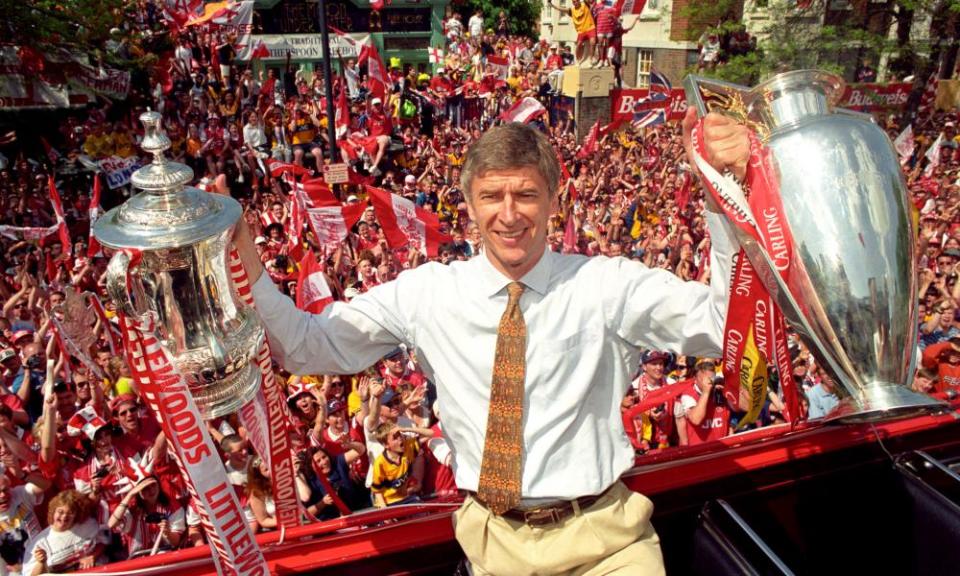
Michael Rosen
Author
Do you think taking part in football at your level teaches a person a form of philosophy?
Yes, I would say without a form of philosophy you cannot work at that level. You are the guide. And the guide needs first of all to know where he goes, no? That’s why it’s important to have a clear idea of what you want from people, and that you can share that in a clear way with your players. Why do players listen to some people and not to others? I don’t know. But you need a clear philosophy, because it gives you a consistency as well. You always have to know: why am I here? Why do I do that? That gives you strength when it’s tough.
Nines
Rapper
A lot of artists (like me) started supporting Arsenal because of the style of football and because we were fielding black players. Were you aware at the time that you were making the fan base more diverse and influencing a new generation?
I wanted to show the whole world that, yes, what is important in life is how good you are. That we have to rise above all the other problems. I always say that sport is a great meritocracy. It just is based on merit, on competence. So I was happy to contribute to it if that happened. For me, in life, it’s just how good you are and how well you behave; the colour of your skin doesn’t matter.
Patrick Marber
Playwright
Which theatre, plays or musicals have meant the most to you?
I must confess that I didn’t go anywhere for theatre. I’m not a music specialist at all. I like music, but my life was completely dedicated to sport. I am quite ashamed to say that. But after 20 years, when my friends came to my home and said, “What do I have to visit in London?”, I always told them: “I know only the way to the training centre and to Arsenal, to the Emirates.” I don’t know what is in London. It’s a box I never opened. In the evenings, I watch football.
José Mourinho
Football manager
I had the opportunity to get to know you at Uefa and Fifa meetings and dinners. With your culture and vision, I believe you have the qualities to be a top exec, such as a CEO or director of football, at a club. Would you have ever considered such a role at Arsenal or was your desire always to remain on the pitch?
No, I would have considered being on the board at Arsenal as an adviser. I believe that honestly there is a deficit of knowledge in the big clubs of top, top-level competition and games of top-level sport. And I believe we have seen recently that there are many ways to be successful in football. For example, there’s the Bayern [Munich] way, where the whole success and continuity relies on people who know the values of the club, and they transfer that from generation to generation: Beckenbauer, Hoeness, Rummenigge. Or there are models in England of quick money and quick success. Both can work. I like the fact that a club is first an identity and has knowledge that is transferred from generation to generation. So that’s why I saw things that way.
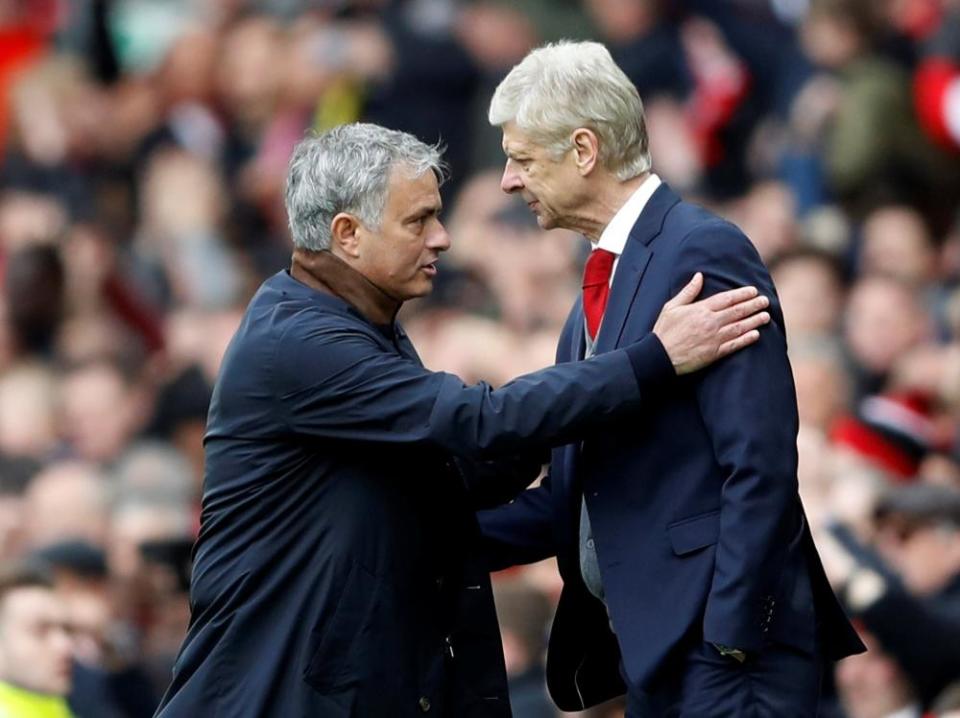
Simon Armitage
Poet
Will we ever see men and women playing together in the same Premier League team?
I would say that the trend in the last 10 years has been mainly physical in the Premier League and in football in general. So it will need to be a woman with exceptional physical potential. It could be a woman who is a 100-metre runner with an exceptional technique. Why not? I don’t rule it out, but it will be only exceptional, never routine.
Paul Gilroy
Academic
How did your immersion in Japanese life alter your understanding of both sport and aesthetics?
It was beneficial for me because it made me more open-minded. Let’s not forget I came from Alsace and I worked in Monaco; Monaco is a different country compared to Alsace. After that, I worked in Japan, then England, which is again very different. These kinds of experiences make you more tolerant, more willing to understand other people and realise that, at the end of the day, the culture in each country [consists of] reflexes that we have built in our childhood. To meet somebody else means you have to get out of yourself and try to see who the other guy is in front of you. And it’s part of the job of a manager.
That’s what I tried to do in Japan. I tried to learn the language. I tried to have a Japanese assistant to explain to me how to behave. And it was a very interesting and exciting experience. I almost decided that I would not come back to Europe, if it was not for a big job.
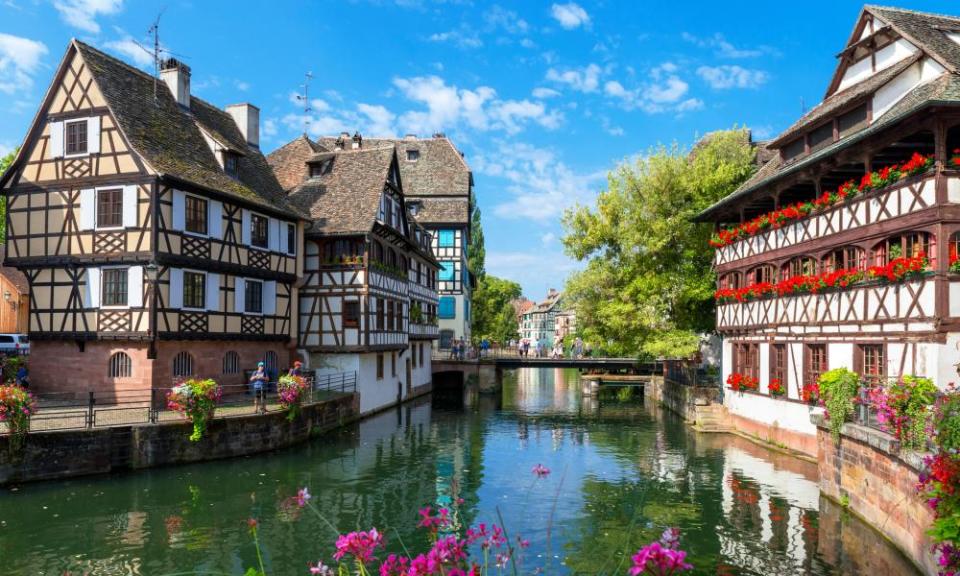
Jazzie B
Musician
As a foreigner in both places, how did living in London compare with living in Japan?
When I came back from Japan to England, I felt more at home, because Japan is such a different country. Even if you enjoy many aspects, you are closer to the culture when you come back to England. But I always say to the players, when you’re foreign somewhere, you of course want people to accept you, but as well you have to think: “If I am here, I have to give more than local people.” Therefore, I found it good to work in foreign countries, because it helped me to develop rigour, to be more demanding. I felt that, if I’m here, I have to give more than local people.
Jeremy Deller
Artist
What was the last non-football book you read and what did you think of it?
At the moment I am finishing Sapiens [by Yuval Noah Harari]. I try to read everything that helps me to understand human beings better. And how society works and how democracy can evolve at the moment. Because it looks to me that the world is a little bit in trouble. At Fifa, we are confronted with that. And England, especially at the moment, is confronted with many problems about that.
Asif Kapadia
Film director
What is your favourite film?
Midnight Express, maybe, because I did a study on that, and the relations between America and Turkey, when I was a student. Recently, I have watched Bohemian Rhapsody and Rocketman, about Elton John, because I know him a little bit. But I would have to think more; maybe some films from Visconti.
Philippe Sands
Lawyer
In your time, has there been a change in the relationship between football, racism and nationalism?
I always felt football could be ahead and show examples of how the world could work. Why? Because with football, you don’t need to communicate with language. You share the emotions with the way you play. And that’s why you could put players from different countries together and show that you can achieve something together.
So, I believe that on that front, football can be ahead of tomorrow’s society and be the example. I never felt a bit nationalist. I love my country, I respect my country, but I am not going to feel that because I’m from this country, this country is superior to other countries.
Jeremy Corbyn
MP for Islington North
I always felt that your philosophy as a manager reflected the ethos of the local community. How did you stay true to those principles when it came to be so difficult in football?
Overall, we know today that a football fan loves their national team. They love the big club and they support the club where they were born, their local club. Arsenal has the advantage of being a big club and a local club, but you have to continue to cultivate that local spirit. The luck we had when we built the [Emirates] stadium is that we could stay with our fanbase.
But for most clubs, the local support is shrinking, especially if you go down to lower divisions. So out of 92 clubs today, we have 20 Premier League clubs, and out of the other 72, 65 are losing money, because the local support is shrinking.
Spike Lee
Film director
Dear sir, will the greatest Arsenal player of all time, Thierry Henry, ever be given a fair chance to be head of the Gunners and lead us back to our glory days? Thank you and God bless, Spike
Well, I wish. I hope that Thierry Henry is successful in his career as a manager, and if he’s successful as a manager he might one day come back to Arsenal. But I especially wish that we go back to win the championship before that happens. For example, now we have Mikel Arteta in charge, why should we not do it? A club is about identity. Identity is about values and values are about the people who carry these values. And so it’s important there is a continuity on that front for me.
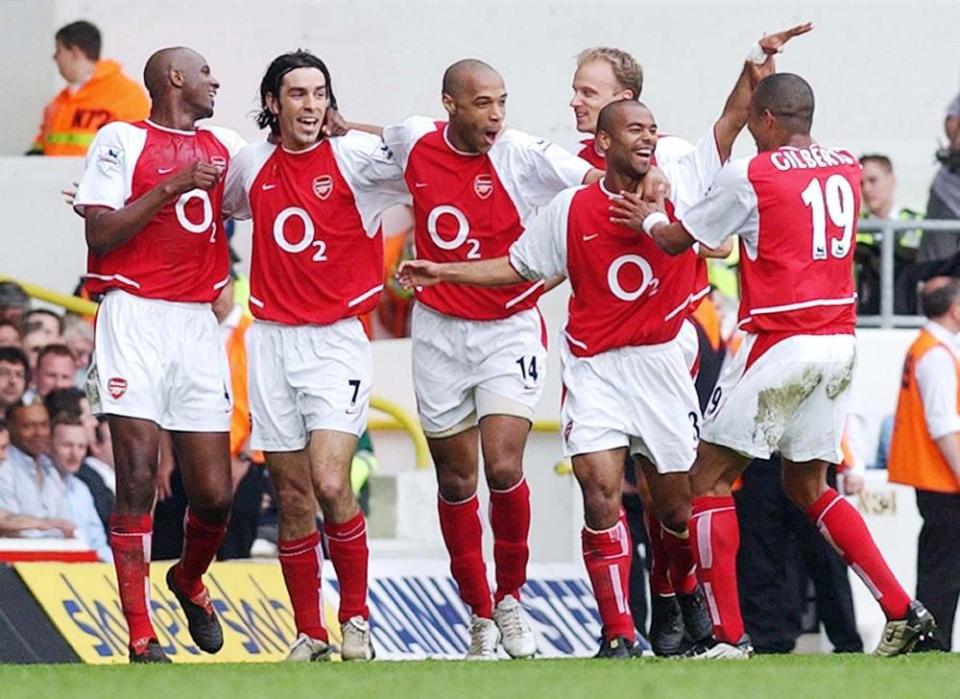
Ken Loach
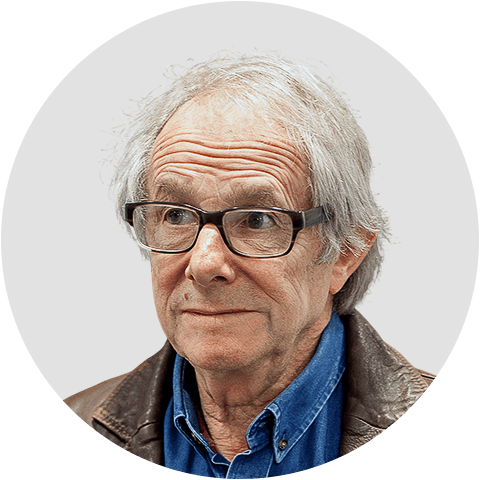
Film director
Many of us deplore the growing inequality in football, where Premier League clubs have incomes of many millions and lower league and semi-professional clubs struggle to survive, mirroring other industries and services, where the economic system produces extreme wealth for a few and poverty for many. How can supporters, players and managers come together to change this?
Well, I met Ken Loach on a train to Paris once and we had a little discussion about films and, yes, he talks a lot about the problem of rich and poor. In life, people are lucky and people are unlucky. And football will not overcome the problem that exists at the moment – the growing difference between the rich and the poor – without helping the poor. We cannot let the smaller clubs die, and still want an elite, and I believe some clubs will die if we don’t help them.
When you walk somewhere and you see a football pitch with houses around, there’s life there. Without a football ground, there’s no life. We have all played football at different levels, but football is part of a community, part of the society. Part of the dreams of people. You have to maintain that in every community.
Adrian Dunbar
Actor
What were you feeling when you watched Manu Petit score a goal in the 1998 World Cup final [to confirm France’s 3-0 victory against Brazil]?
I was happy because, first of all, it was my country. And secondly, because it was Manu Petit, who had not played for a long time for the national team. Aimé Jacquet [then manager of France], who is a very intelligent man, listened to me when I told him: “Take him, you will not be disappointed.” For me, Petit was the man of the World Cup in 98 and it was the perfect gift for him because, like Patrick Vieira, he won the double with Arsenal, and he won the World Cup. So, of course, I was extremely happy on the night.
Saffron Burrows
Actor
Did you feel you were leaving your life’s work when you left Arsenal?
Yes, of course. It was the end of a love story. And when you cannot speak any more to the loved person, you can’t go to the training ground, you can’t go to the stadium. You just have to stay where you are. And I never did that [before] in my life. You do 22 years and then suddenly you stop. It was very difficult.
I wanted to cut my link with the club completely, because the club wanted that as well. So then I decided not to go back [to the stadium to watch matches]. But I still support Arsenal with the same passion. You work hard, you do as well as you can. And after you don’t cry, you don’t complain and you get on with it. Suffer in silence, and that’s what I did!
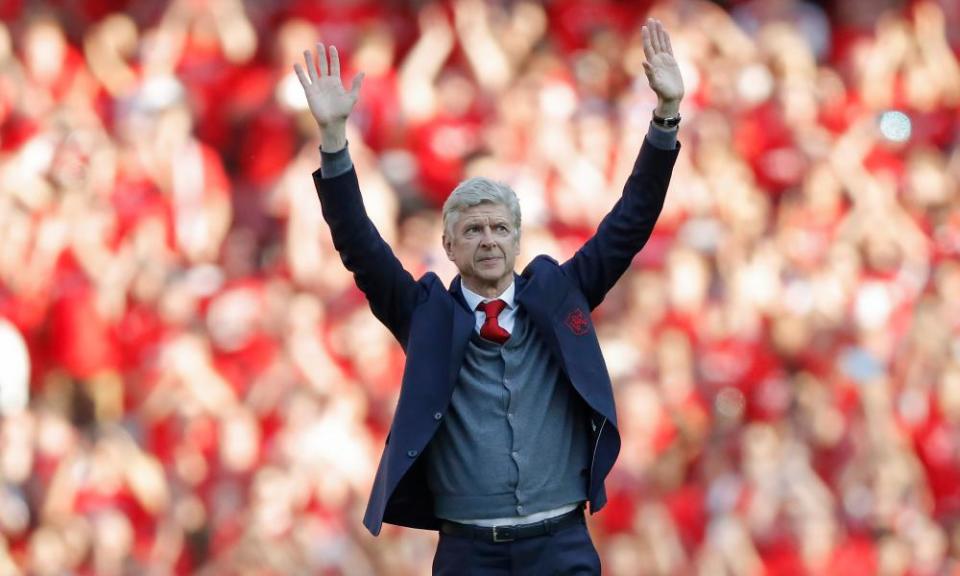
Questions from readers
Which language do you prefer speaking and reading in?
Andrew Gogarty, London
French. I speak German and English well, and French very well [laughs]. I can understand Italian, Spanish, some Japanese, but I speak them less well. But if I live for a while there it’s OK.
What one piece of advice would you give [current Arsenal manager] Mikel Arteta?
Stephen, France
To continue to have a grip on the team, as he has at the moment. And to go to the end of his beliefs. I think there is a good team spirit and they have a good chance to do well. I believe it will not be very difficult to improve on the number of points they got last season. But I’m convinced Arsenal can be in the top four, if not more. Why not more? They can be the surprise package for me this year: they bought well, they strengthened the defence well. And they kept the players who were already there. In my last year I bought [Pierre-Emerick] Aubameyang, they kept him. They have every ingredient and no real weakness.
Have you ever been tempted to get on social media? If not, why?
Anthony Thomas, Oxford
No, because I wanted to stay immune to that. I believe that you focus on what is essential and social media is [only] interesting when it’s about learning. When I was a kid, you had to fight for information. When I could find the right thing in the library, I was very happy. Now you have too much information. So it is more about selection of the right information. I’m not against social media, but a lot is a waste of time. And it is a little bit too black or white. Life is a bit more complicated than that.
For me, a socialist is trusting connectivity to sort the problems of a societ
You received a lot of criticism over your career, more so towards the end of your time with Arsenal. Was there any that particularly affected you?
Samrat, India
You have to analyse what is justified and what is not. I was, of course, affected by critics. Because nobody can say he is immune to that, especially when you feel you are giving it your best. The critics started in 2016, when we finished second in the league, because we didn’t win the championship. And I would say that if we finished second in the league today, it would be a huge success. But because Leicester won the championship, everybody else was guilty. But they had a super team and they lost only three games in the season. Overall, it is like that when you are a long time somewhere.
Were you ever approached to manage the English national team and, if so, why did you turn it down?
Gavin Stamp, Kingston upon Thames
Many times I was approached to coach the English national team. I turned it down for two reasons. Because I felt that, first of all, it’s better an English guy does it. And secondly, because I was happy where I was. I was at a club where I loved to do what I did.
Bayern, Juventus, Barcelona… so many clubs approached me. And today, I’m proud of how I led my life. I served this club through the delicate period to pay the stadium back. It was not only about winning the championship, but guiding the club through a very sensitive time and going completely to the end of it. And that’s what I tried to do. Afterwards people said: “You stayed too long.” Maybe, but [laughs] it’s not the way I felt!
Arsène, are you a socialist?
Nabhas, India
What is socialist for you? For me, a socialist is trusting connectivity to sort the problems of a society. First, you need a collective environment that favours the expression of the individual. After that, I think it’s down to an individual’s initiative to make the most of their life. But the dominant thing is a collective environment for me.
Do you think your passion for beautiful football made you less successful and are you OK with that?
Matt, Highbury
I believe that football has gone more now for defensive organisation because more scientists are taking over and the physical qualities of the players are stronger. But at some stage in sport you always have to try to reward people who take initiative. Or we will get bored very quickly.

You brought about a revolution in the way British footballers considered their diet and wellbeing. Psychology and mindfulness are the current fashion in elite sport. What do you think could be the next big game-changer?
Dan Graham, Melbourne
The next game-changer is neuroscience. Why? Because we are at the end of the improvement of physical speed. The next step will be to improve the speed of decision-making. The speed of execution, the speed of coordination and that’s where neuroscience will come in. In the last 10 years, the power and speed of individual players has improved, but now you have sprinters everywhere. The next step certainly will be to improve the speed of our brains.
What do you think of Tottenham?
Jasmine Baba, London
Hostility no, competition yes. It was vital [at Arsenal] that you beat Tottenham for the respect of the club. Competition is important, as long as it’s not crazy. When you [were due to] play Tottenham, at the start of the week everybody was a bit more nervous than usual.
Who is the one player you regret not signing when you had the opportunity to?
Ross Hamilton, Belfast
Oof! I would say there is not one player, there are 50! On the other hand, maybe the closest [to that] was Cristiano Ronaldo, when he signed for Man United. We had an agreement with Sporting and Man United took Carlos Queiroz as assistant coach, and they just outbid us quickly and took Ronaldo. But we had an agreement basically. He had the shirt of Arsenal, I had lunch with him and his mother at the training ground!
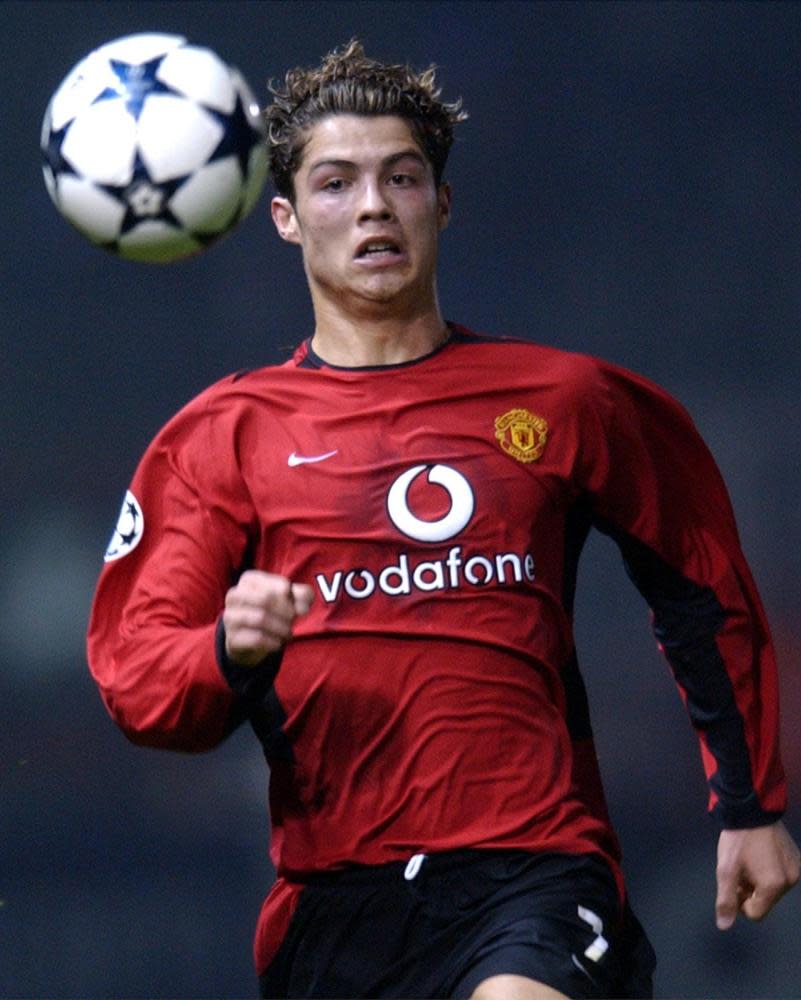
It’s one example but there were so many. The history of a big club is full of missed great players!
If you could go back in time, what would be the one thing you would do differently at the 2006 Champions League final versus Barcelona [when Robert Pires was substituted after goalkeeper Jens Lehmann was sent off and Arsenal lost 2-1]?
Ade Solarin, Copenhagen
[Sighs] I ask myself this question many times. Maybe I would just play with two central defenders in the last 13 minutes when we were 2-1 down. But the regret from that Champions League year is that we’d beaten Real Madrid with Zidane and Ronaldo, we’d beaten Juventus with Ibrahimović, Trezeguet and Vieira. And we go into the final and we haven’t conceded a goal in the knockout stages against these teams. When you play the whole game with 10 men, you know the last 20 minutes will be difficult, especially against a team like Barcelona. But we had the chance to score the second goal two times and we missed it.
So it’s mixed feelings. Every defeat plays on my mind. And you have to think not what you should have done, but what could you have done?
After all the controversies surrounding the World Cup, how can you, as Fifa’s head of Global Football Development, help bring back the trust of the fans?
Matthew Chong, Malaysia
By being transparent. Fifa has to be completely open, their accounts have to be open. Fifa is not owned by the people who lead Fifa, it’s owned by the people who love football. I believe that Fifa needs an education mission and I’m the head of that and we want to reach people all over the world. At the moment, football is well organised in Europe but not in the rest of the world. Everybody in the world deserves a chance in the game and we have to be guided by that at Fifa.
Coming into autumn, would you prefer a roll neck or cardigan?
Gary McAreavey, Ireland
A roll neck jumper, because I like to go out in nature and spend time in the forest with the trees, and I like freedom of movement.
My Life in Red and White by Arsène Wenger, translated by Daniel Hahn and Andrea Reece, is published by Orion (£25). To order a copy go to guardianbookshop.com. Free UK p&p over £15
On Wednesday 14 October, Arsène Wenger will be talking to sports writer Donald McRae in a livestreamed Guardian Live event. Book tickets here

 Yahoo Sport
Yahoo Sport 



































































